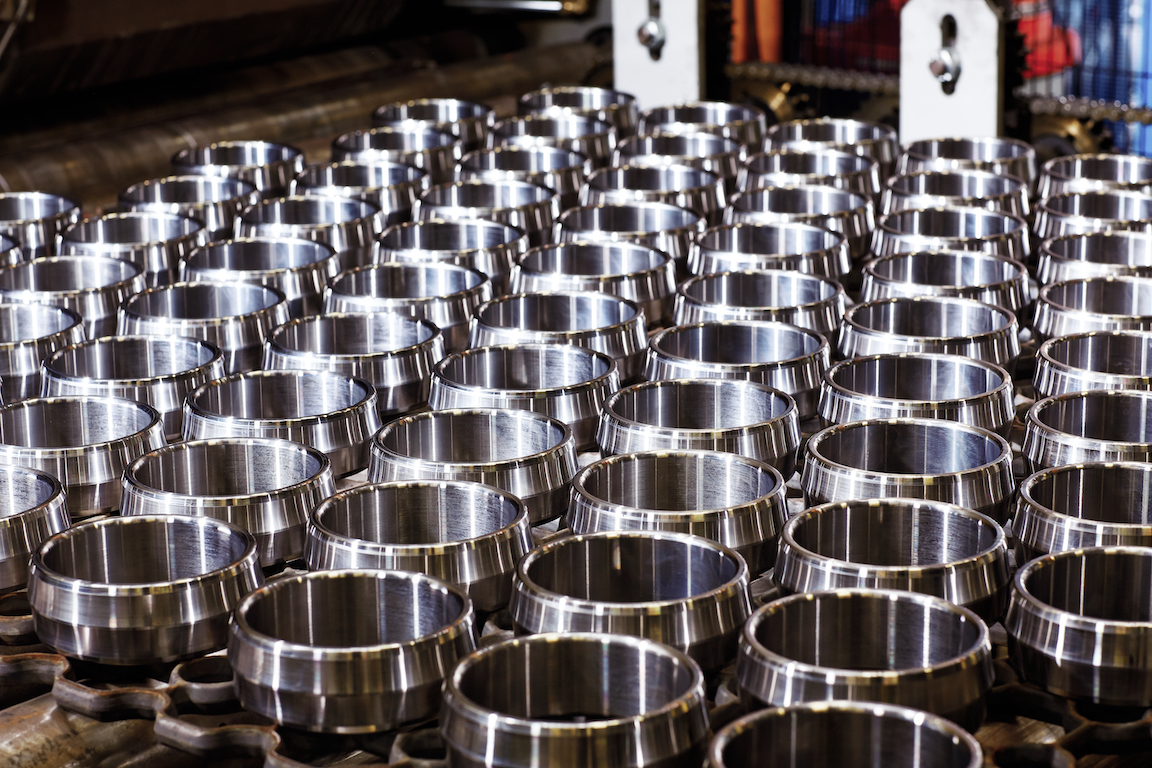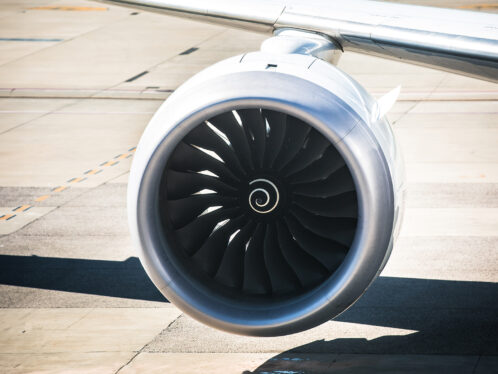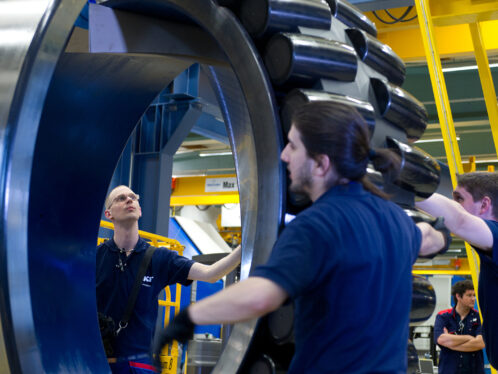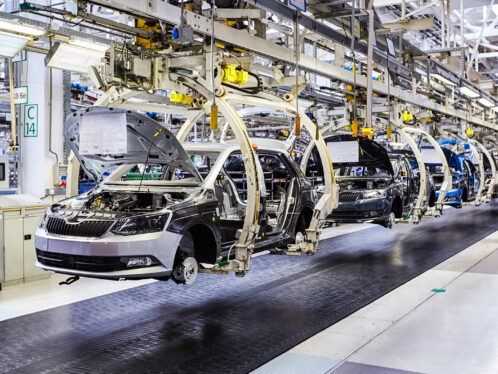
Leaner, cleaner compression
Summary
Long-term improvement
Atlas Copco’s industrial and dry air compressors all use SKF bearings. Cooperation between the two companies normally extends over the entire life cycle of the designs being used. Over the years, this has resulted in constant improvement of the compressors.
For example, continual downsizing has resulted in more compact designs and lower friction, while the reduction of manufacturing tolerances has led to less vibration and greater reliability.
The internal geometry of the bearings is optimised, which reduces operating temperatures. This, in turn, allows for longer oil-change intervals.
By adding additional functions to standard bearings, the number of component parts can be reduced, resulting in lower inventory and faster assembly. Advanced application analysis by SKF software during the product design phase ensures reduced development time and a shorter time to market.
Efficient running, lower energy consumption and silent operation not only fits Atlas Copco’s environmental policies, it also saves money for the company’s customers.Atlas Copco has its roots in the Atlas company, which was founded in 1873 by Eduard Fränckel to supply the Swedish railway company Statens Järnvägar with domestically produced equipment.
Today, Atlas Copco is a global industrial success story with four business areas:
Compressor Technique, Construction and Mining Technique, Industrial Technique and Rental Service. Headquartered in Stockholm, the company manufactures in 13 countries and employs more than 26,000 people.
Compressor Technique’s headquarters are situated near Antwerp, Belgium. Here it develops, manufactures, markets and distributes a range of products that include industrial and portable compressors, generators, air dryers, after-coolers and filters. Much of the rotating equipment uses SKF bearings.
“Compressed air is used in all kinds of industry for all kinds of usage,” explains Ludo Van Nederkassel, engineering manager for the Industrial Air division of Compressor Technique.
Compressor Technique is divided into five divisions: Airtec, which manufactures compressor elements and core components; ACT, which manufactures large compressors and turbo expanders, primarily for the process industry; Portable Air, mobile compressors and generators; the Industrial Air division, which produces large quantities of small and medium-sized industrial compressors used primarily to supply air as a power source; and Oil-free Air, which plays a key role in Atlas Copco’s environmental policies. “Oil-free air is certainly more environmentally friendly than the air from lubricated compressors, but the initial investments in oil-free compressors are higher,” says Hans De Rycke, engineering manager for the Oil-free Air division.
“Oil-free compressors are used where air quality is paramount, as in the food industry, electronics, pharmaceuticals, textiles, breweries, the automotive industry and several process applications,” he explains.
Environmental awareness
“Concern for the environment is a way of life at Atlas Copco,” adds Anil Hingorani, product-marketing manager for the Oil-free Air division. “It influences our business practices from product design through to the actual use of the air. The key issue that emerges is energy efficiency, since energy consumption is the major source of green house gases.”
Energy consumption accounts for up to 80 percent of the life cycle of compressed air equipment, and reducing energy consumption not only fits the company’s environmental policies, but it also suits the customer’s pocket. With reduction in energy consumption in mind, Atlas Copco has designed and built a wide range of industrial compressors, including oil-free compressors, with integrated variable speed drives (VSDs).
“Air demand fluctuates, and conventional compressor regulation systems waste a great deal of energy in trying to follow the changes in those demands,” explains Hingorani. “VSDs modify the speed of the motor and compressor so they follow these fluctuations in the most efficient way.” Independent tests have shown that in some cases, energy savings of as much as 35 percent are possible. As VSDs can provide air consumers with exactly the right amount of air, energy waste is dramatically reduced, benefiting not just the customer’s bottom line but the environment as well.
VSD speed can be regulated between 20 and 100 percent of maximum capacity; if a capacity below 20 percent is required, the compressor can simply be stopped and restarted, without negative effects on the system. “The amount of energy saved depends on the application,” explains Van Nederkassel, “But in every factory using compressed air, there will normally be a need for at least one VSD compressor.”
Quiet measures
But it is not just with new products that Atlas Copco is going greener. Measures have been taken throughout the production processes to reduce environmental damage in areas such as noise pollution. Explains Van Nederkassel: “We’re working hard on minimising compressor operating noise at source.” Environmentally friendly practices such as these, combined with an environmental management system, have earned Atlas Copco Airpower in Belgium an ISO 14001 certificate.
In addition, the Antwerp plant recently inaugurated a EUR 6 million test facility, which will further accelerate the development of newer and more efficient designs.
The compression process generates a large amount of heat, which can also provide a valuable means of energy saving for Atlas Copco customers via energy recovery systems. “Rather than transferring this heat into the environment, it is recycled back into industrial environments in the form of hot water, which can be used in a number of ways – in heating systems, for example,” says Van Nederkassel.
Alternatively, a range of MD air dryers developed to operate with the Z range of compressors use heat generated during compression to dry the compressed air, eliminating the need for extra energy input to dry the air.
“We are also promoting our workplace air system,” adds Van Nederkassel. “For smaller workshop applications, these compressors can be positioned next to the point of consumption. This provides energy savings through leak reduction, less pressure drop and easier waste heat recovery.”
The Compressor Technique HQ employs more than 2,000 people and is the largest company in Belgium’s mechanical sector. The site in Antwerp has an area of more than 400,000 square metres. It is so big that, in a final nod to the environment, the company provides bicycles for its staff to get around.
Anna McQueen
a freelance journalist based in Paris
photo Atlas Copco




